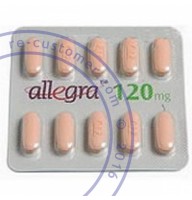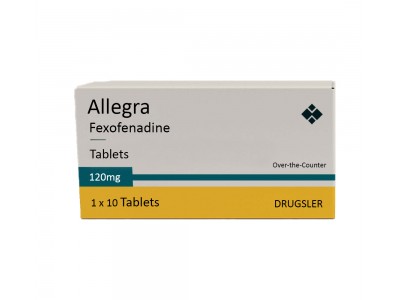Allegra (fexofenadine) is an over-the-counter antihistamine used to treat symptoms of seasonal allergies, such as runny nose, sneezing, and itchy or watery eyes. It's also used for other allergy-related conditions like hives. However, it's important to know how to take Allegra fexofenadine to ensure its maximum effectiveness and avoid side effects. In this article, we will explore everything you need to know about using this medication, including the correct dosage, timing, and important precautions.
What is Allegra (Fexofenadine)?
Allegra contains the active ingredient fexofenadine, which is a second-generation antihistamine. Unlike first-generation antihistamines, Allegra is less likely to cause drowsiness, making it an excellent choice for daytime allergy relief. It's available in tablet form, with common dosages being 60 mg and 180 mg. Fexofenadine works by blocking the action of histamine, a chemical produced by the body during allergic reactions, which helps to relieve symptoms like sneezing, itching, and watery eyes.
How to Take Allegra (Fexofenadine)
The dosage of Allegra depends on the age of the user and the condition being treated. For most adults, the typical dosage for seasonal allergies is 180 mg once daily. Children between the ages of 6 and 11 may take 30 mg twice daily. It is important to follow the exact Allegra dosage instructions provided by your healthcare provider or the directions on the packaging to avoid any risks of overdose or underdosing.
Should You Take Allegra With Food or on an Empty Stomach?
Allegra can be taken with or without food. However, some people find that taking it on an empty stomach enhances its absorption. It’s important to take Allegra best time to take into consideration for optimal effectiveness. If you prefer, you can take Allegra with a light meal, but avoid heavy, fatty meals that may delay the absorption of the medication.
Precautions When Taking Allegra
Before taking Allegra, consult your doctor if you have any existing medical conditions such as kidney disease, as Allegra is processed through the kidneys and could accumulate in your system. Allegra fexofenadine precautions include avoiding the medication if you are allergic to any of its ingredients. If you experience any side effects, such as dizziness, rash, or trouble breathing, seek medical attention immediately.
Can You Drink Alcohol While Taking Allegra?
One of the common concerns with antihistamines is whether they can be safely combined with alcohol. In the case of Allegra, it is generally considered safe to drink alcohol in moderation. However, drinking alcohol may increase the risk of certain side effects such as dizziness or drowsiness. Always exercise caution, and if you have any doubts, speak with your doctor. Be mindful that while Allegra and alcohol don’t have a significant direct interaction, combining them may still affect your ability to function normally.
Allegra Side Effects
As with any medication, Allegra can cause side effects. The most common Allegra side effects include headaches, dizziness, and dry mouth. Serious side effects are rare but can include difficulty breathing or swallowing, swelling of the face or throat, and irregular heartbeat. If you experience any of these symptoms, seek immediate medical help. Overall, the Allegra fexofenadine tablets are well tolerated when used as directed.
What Should You Do If You Miss a Dose?
If you miss a dose of Allegra, take it as soon as you remember unless it's nearly time for your next dose. Do not take two doses at once to make up for a missed dose. Adhering to the prescribed schedule is important for maintaining the effectiveness of the medication. If you have any concerns about the timing, consult your doctor for advice on how to take Allegra fexofenadine in such cases.
Conclusion
In conclusion, knowing how to take Allegra (fexofenadine) correctly is crucial for managing your allergy symptoms effectively. Always follow the Allegra dosage instructions and take note of the timing for your doses. Whether you take it with food or not is up to personal preference, but always avoid any potentially risky interactions like mixing alcohol with the medication. If you experience any unexpected side effects, contact your healthcare provider to ensure your treatment plan is working as intended. By taking the proper precautions, you can enjoy relief from your allergy symptoms without unnecessary complications.

